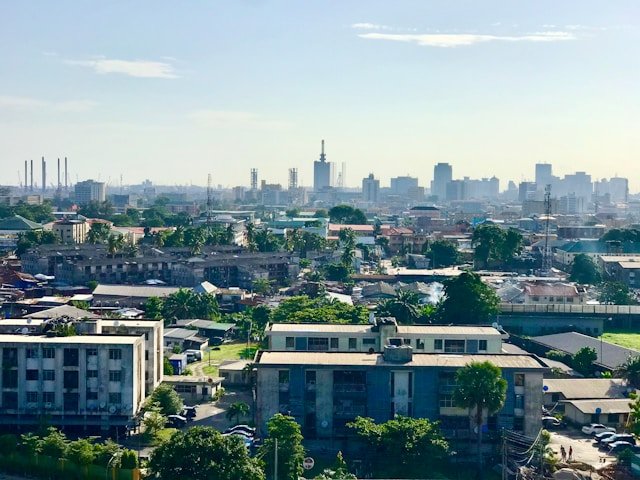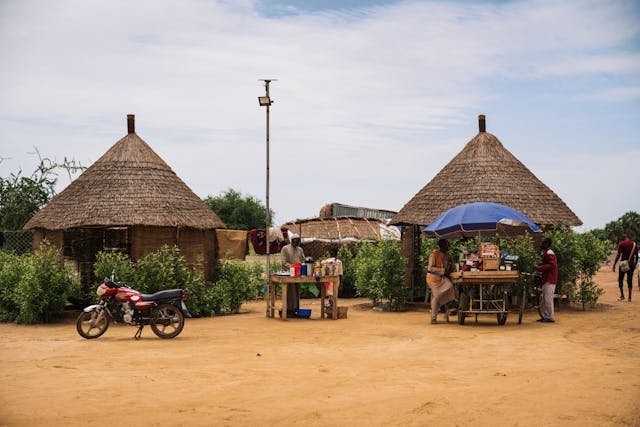
Have you ever wondered how people in Nigeria decide who owns which piece of land? Nigeria, like many countries, has a system in place to answer this question. This system is called the land tenure system. In this article, we’ll break down the different types of land tenure systems found in Nigeria and see some of the advantages, disadvantages and the problems. By the end, you’ll be a mini-expert on how land ownership works in this fascinating country.
Quick Takeaway points
- Land tenure system defines how land is owned, used and transferred.
- Two main types of land tenure system in Nigeria: customary and statutory.
- Customary land tenure is more common in rural areas and based on traditions.
- Statutory land tenure is based on government laws and regulations.
- Land tenure system can impact security, investment, disputes, development etc.
- Nigeria’s land tenure system faces challenges that hinder development.
Contents
What is Land Tenure System
A land tenure system is a set of rules that define how land is held, used, and transferred. These rules can be formal, as in laws passed by a government, or informal, as in customary practices that have been followed for generations. Land tenure systems are important for several reasons. They provide security for people who use land, and they can help to promote economic development and investment. They can also play a role in environmental protection.
Importance of Land Tenure System
Here’s why land tenure systems are important:
- Stability and Investment: Clear land tenure systems encourage investment in land because people are confident they have secure rights and can reap the benefits of their improvements. This can lead to economic growth.
- Reduces Conflict: When there are unclear rules about land ownership, it can lead to disputes and conflicts. A good land tenure system helps prevent this by clearly defining rights and responsibilities.
- Food Security and Livelihoods: Secure land rights, particularly for small-scale farmers, are essential for food security and sustainable livelihoods. People who know they can rely on their land are more likely to invest in it and produce more food.
- Social Equity: Land tenure systems can play a role in promoting social equity by ensuring that everyone has fair access to land and resources. This is especially important for vulnerable groups like women and indigenous people.
See>>>17 Things to Know Before Buying Land in Nigeria
Types of Land Tenure System
There are several land tenure systems in Nigeria, which can be broadly categorized into two main types: customary land tenure and statutory land tenure.
1. Customary Land Tenure System
This is the most common type of land tenure system in Nigeria, especially in rural areas. It is based on the traditions and customs of a particular community. The land is considered to belong to the entire community, with families or individuals having usufructuary rights to use the land. Usufructuary rights mean that a person has the right to use and benefit from the land, but they do not own the land itself.
Here are some of the common types of customary land tenure systems in Nigeria:
- Communal Land Tenure System: Under this system, the land belongs to the entire community. Every member of the community has the right to use the land for agriculture but cannot sell any portion of it. The head of the community decides how the land is divided among members for farming purposes.
- Inheritance Tenure System: Land is passed down from generation to generation within a family. The head of the family typically allocates land to different members of the family.
See>>> Land For Sale In Nigeria
2. Statutory Land Tenure System

This type of land tenure system is based on government laws and regulations. It is typically found in urban areas and government-controlled areas. The government is the ultimate owner of the land, and individuals or organizations can obtain certificates of occupancy or leases to use the land.
Here are some of the common types of statutory land tenure systems in Nigeria:
- Freehold Tenure System: This system is similar to freehold tenure systems in other common law countries. Individuals who subscribe to the Freehold tenure system pay a predetermined amount for the right to own a plot of land in perpetuity. The bigger the land, the greater the amount you will pay. The land is surveyed after an agreement has been reached. It is important to understand that after survey has been carried out and it gets registered, it is known as registered survey, click on the link to know more.
- Leasehold Tenure System: An individual is granted temporary ownership of a plot of land by some form of a title from the government or a private owner. The lease typically has a fixed term, after which the land reverts to the owner.
- Gift Tenure System: Land is given as a gift from one person to another. The recipient of the gift may have certain obligations to the donor, such as paying rent or using the land for a specific purpose.
- Tenants at Will: This is a type of tenancy where the occupier of the land has no formal lease agreement and can be evicted at any time by the landowner.
Recommended>>> Land Documents and Titles In Nigeria You Need To Know
The Land Use Act of 1978 is a key piece of legislation that governs statutory land tenure in Nigeria. The Act vests all land in the government, which can then grant certificates of occupancy or leases to individuals or organizations.
The type of land tenure system that applies to a particular piece of land will depend on several factors, such as the location of the land, its history, and how it is being used.
Advantages
- Security and Stability: Traditional inheritance systems can provide a sense of security for families, knowing the land will be passed down for generations. Clear inheritance rights can also help avoid disputes within families.
- Promotes Investment: When landowners know they’ll pass the land to heirs, they might be more incentivized to invest in improvements and long-term productivity.
- Reduced Land Disputes: A clear framework for land ownership and transactions, as outlined in the Land Use Act, can help reduce conflicts arising from unclear ownership.
- Orderly Development: The Act promotes planned development in urban areas, reducing congestion and facilitating infrastructure projects.
Disadvantages
- Centralized Control: The Act vests a lot of power in the government regarding land ownership. This can lead to bureaucracy and inefficiencies in land transactions.
- Limited Access for Investors: Government control and potential bureaucratic hurdles can make it difficult and time-consuming for investors to acquire land.
- Compensation Challenges: The Act mandates compensation for government acquisition of land, but disputes over fair value can arise.
- Land Fragmentation: Inheritance practices can lead to land being divided amongst multiple heirs over generations. This fragmentation can make using the land for large-scale agriculture or development projects difficult.
Problems

Nigeria’s land tenure system faces several challenges, hindering agricultural development and impacting various groups. Here are some of the key problems:
Insecurity of Tenure: Many lack clear ownership rights, making it difficult to invest in the land or use it as collateral for loans. This discourages long-term improvements and innovation.
Fragmentation: Traditional inheritance practices often divide land into smaller and smaller plots, making them inefficient for modern agriculture.
Lack of Clarity: Customary land rights are often unwritten and unclear, leading to disputes between families, communities, and different levels of government.
Difficulties for Women and Youth: Women often face customary barriers to inheriting or owning land, limiting their opportunities in agriculture. Youths may also struggle to access land due to these factors.
Government Land Acquisition: The process of acquiring land from the government can be slow, bureaucratic, and lack fair compensation for those who lose their land.
Disadvantageous Land Use Laws: The Land Use Act of 1978 has been criticized for giving excessive power to state governors and not adequately addressing the rights of smallholders.
These problems all contribute to a situation where Nigeria’s agricultural potential is not being fully realized. It can lead to environmental degradation, hinder economic development in rural areas, and fuel social unrest.
Recommended>>>
- What to Do After Buying Land in Nigeria
- A Comprehensive Guide to Mortgage Loans in Nigeria: Everything You Need to Know
- Own It Now: Top Mortgage Banks in Nigeria
- How To Become a Realtor In Nigeria Without Experience
- Follow me on TikTok for quick tips and behind-the-scenes tours
- Subscribe to my YouTube channel for in-depth videos and property showcases
- Follow me on Facebook for updates, listings, and real estate advice


Leave a Reply